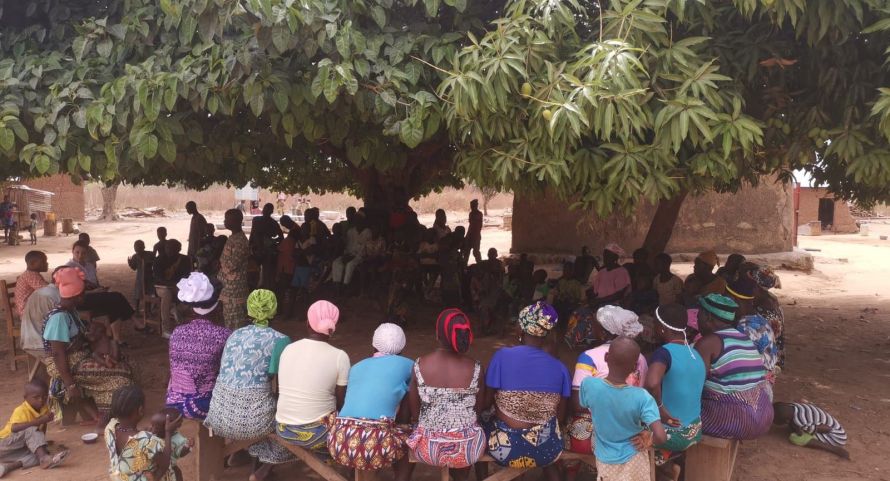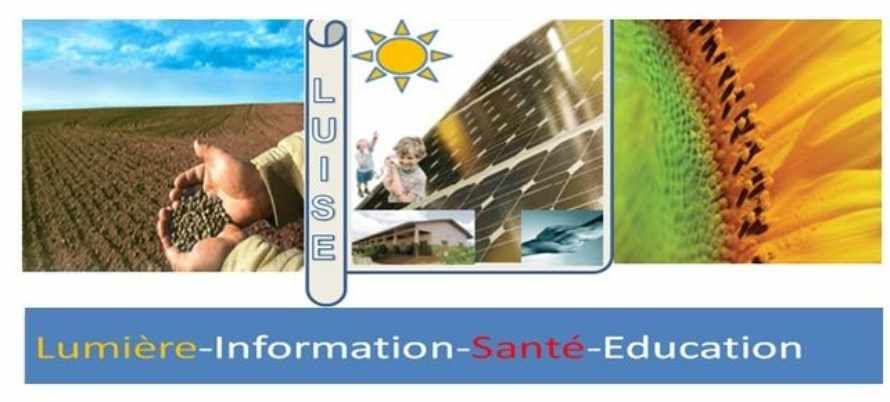Solar power helps women increase their agricultural yields

The challenge
In Benin, only 30 percent1 of people actually have access to electricity. Yet the country has great potential for renewable energy from water, wind and sun. Inhabitants of rural areas in particular usually have no access to reliable, modern energy supplies. This also applies to villages located on the outskirts of cities, such as Thian Worou N’Gourou, near the city of Parakou, and Tantaga, near the municipality of Toucountouna. The more than 1,000 households in both villages neither have access to electricity, nor to sufficient water. They rely on biomass for cooking and heating. The people, who mainly work in agriculture, also lack electricity to process and market their products more efficiently.
The goal
The non-governmental organisation, LU.I.S.E. – the letters stand for Light, Information, Health, Education – wants to change that. Having completed the first phase of its GBE Small Projects Fund-supported project in the village of Amouloko, the NGO now plans to replicate some of its activities in the second phase in the two villages of Thian Worou and Tantaga. LU.I.S.E intends to supply them with solar energy, drill a well in both, and construct a community-building in each. In these, small farmers will be able to process their products, with the help of electrically-powered machines, and then store them.
Our partner
The non-governmental organisation, LU.I.S.E, was founded in 2011 and pursues the goal of using decentralised energy solutions to electrify rural regions and ensure sustainable value-creation. Since its foundation, the NGO has implemented various projects for a number of international organisations.
The approach
As in Amouloko, the NGO is following a participatory approach in Thian Worou and Tantaga, too. In both villages, numerous women farmers have organised themselves into women’s groups. In the initial step, the NGO will discuss the details of the measures with the relevant authorities and the women’s groups. In the second step, both communities will provide a plot of land for the project; on it, the residents will erect a building in which they can connect communal appliances, for example, a grain mill and/or a refrigerator. The smallholders will decide which appliances they want to purchase and external service-providers will install solar panels on the top of the buildings. In addition, LU.I.S.E will drill a well which will be powered by a solar pump and will reliably supply the population with water. LU.I.S.E will train selected residents in the maintenance of the various systems.
In the third step, the village community will introduce collective administrative structures with the support of the NGO: these will arrange for the residents to pay a kind of user-fee for the services provided by the solar power, so that the systems can be professionally maintained.
Central and northern Benin
Productive use
Women farmers
06/2021 – 05/2023



